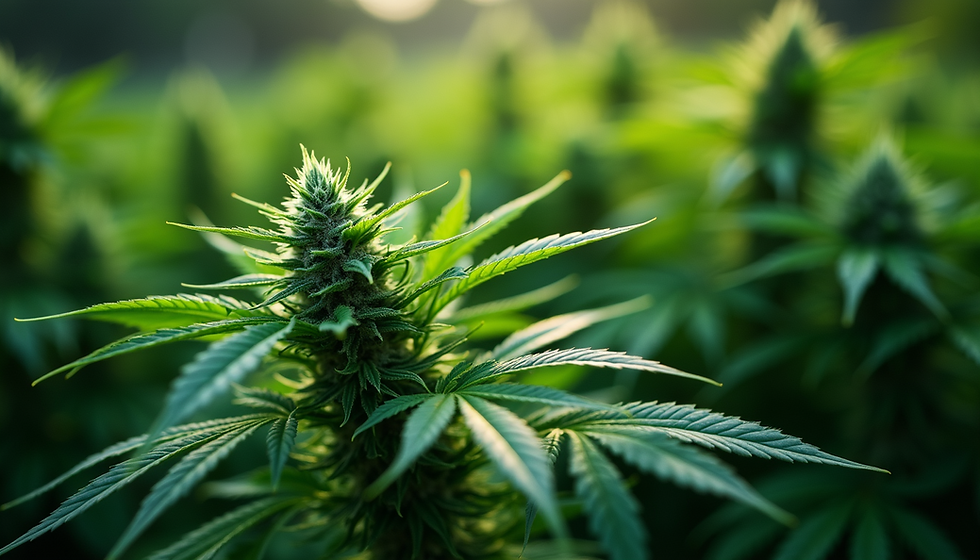CBD for Beginners: Understanding Its Uses and Benefits
- Feb 24, 2024
- 2 min read
Updated: Feb 25, 2024

In recent years, CBD (Cannabidiol) has emerged from the shadows of its more famous cousin, THC, to become a highly sought-after compound for its potential health benefits and lack of psychoactive effects. This comprehensive guide is designed to demystify CBD for beginners, exploring how it interacts with the body, its myriad uses, and the benefits it may offer, while also dispelling some common myths.
What is CBD?
CBD is one of over a hundred cannabinoids found in the cannabis plant, but unlike THC (tetrahydrocannabinol), it does not produce a "high." Its non-intoxicating nature makes it an appealing option for those seeking relief from various ailments without the psychoactive effects associated with marijuana.
How Does CBD Work?
CBD interacts with the body's endocannabinoid system (ECS), a complex network of receptors and neurotransmitters that play a key role in maintaining homeostasis. The ECS regulates various functions, including mood, appetite, sleep, and pain sensation. CBD's interaction with ECS receptors, particularly CB1 and CB2, can influence the release of neurotransmitters in the brain, potentially affecting bodily functions positively.
Potential Health Benefits
While research is ongoing, and many claims require further validation, numerous studies and anecdotal evidence suggest that CBD may offer a range of health benefits:
Pain Relief: CBD's anti-inflammatory properties may make it effective in relieving chronic pain and conditions like arthritis.
Anxiety and Depression: Some studies suggest that CBD may have anxiolytic effects, potentially helping to reduce anxiety and depression symptoms.
Sleep Improvement: CBD may help improve sleep quality by addressing underlying causes such as anxiety or pain.
Neuroprotective Properties: Early research indicates CBD may have beneficial effects on neurodegenerative diseases due to its antioxidant and anti-inflammatory properties.
Common Myths and Misconceptions
Myth: CBD is psychoactive and can get you high.
Fact: CBD is non-psychoactive and does not induce the high associated with THC.
Myth: All CBD products are the same.
Fact: The quality and potency of CBD products can vary significantly. It's crucial to purchase from reputable sources that provide third-party testing.
Myth: CBD has no side effects.
Fact: While CBD is generally well-tolerated, it can cause side effects in some individuals, such as dry mouth, drowsiness, and changes in appetite.
Choosing the Right CBD Product
For beginners, navigating the plethora of CBD products available can be overwhelming. Here are a few tips:
Start Low and Go Slow: Begin with a low dose and gradually increase until you find what works best for you.
Full-Spectrum vs. Isolate: Full-spectrum products contain a range of cannabinoids and terpenes and may offer the "entourage effect," while isolates contain pure CBD.
Third-Party Testing: Look for products that have been independently tested for purity and potency.
Conclusion
CBD offers a promising, natural alternative for individuals looking to support their health and well-being, without the psychoactive effects of THC. As with any supplement, it's important to conduct thorough research, consult healthcare professionals, and consider personal health conditions and goals when exploring the potential benefits of CBD.







Comments